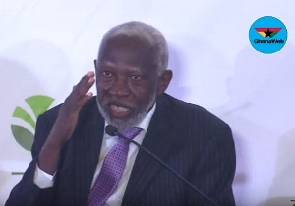The Chairman of the National Development Planning Commission (NDPC), Professor Stephen Adei has said while the government sought to transform higher education through the passage of the Public Universities Bill, there was the need to pay critical attention to private universities.
He observed that private tertiary universities in the country faced “formidable challenges”, including their inability to attract the requisite number of students, establish the right mix of faculty and the mobilization of resources to support quality education.
“Many of the colleges are caught in a vicious cycle of having to charge low fees between GH¢4,000 and GH¢6,000, while the real cost per student is at least GH¢20,000. Yet, they cannot increase their fees because the public regard lower fees charged by public colleges as the yardstick”.
“My wish is that there will be a progressive law that encourages and supports private higher education to contribute effectively to human resource development in the country,” he added.
Prof. Adei was speaking at the graduation ceremony for Executive Master of Business Administration (EMBA) and Master of Applied Business Research (MABR) students at the Nobel International Business School (NiBS) in Accra last Saturday.
Eighteen students, who were the first batch to undertake the EMBA Programme, and 13 others, who were the fourth batch to pursue the MABR, graduated at the event.
The Founder, President and Executive Dean of the NiBS, Prof. Kwaku Atuahene-Gima, urged the graduates to embrace innovation and apply the lessons from their study areas in their fields of endeavour to contribute to the country’s development.
He proposed that teaching at the tertiary level should not be limited to Doctor of Philosophy (PhD) holders but that experienced industry players should be allowed to impart knowledge in order to bridge the gap between industry and academia.
“Why should a subject that is taught in the university be designed and taught only by professors? If we get people involved and change the traditional model by getting industry players to participate in both teaching and evaluation, the right type of people will be developed.
General News of Saturday, 13 July 2019
Source: atinkaonline.com













